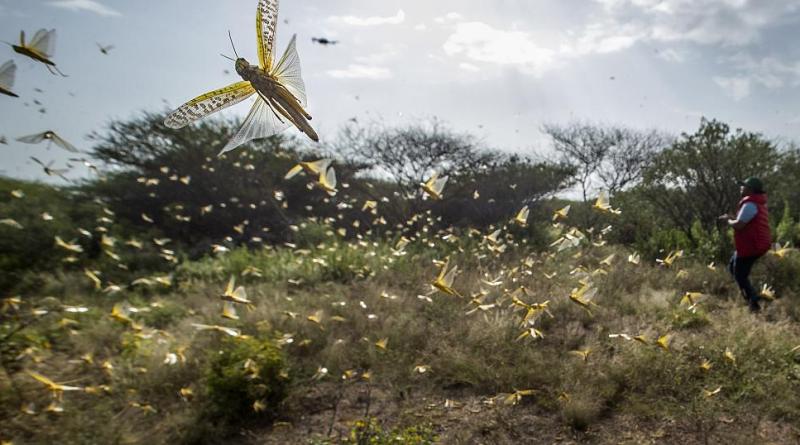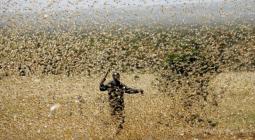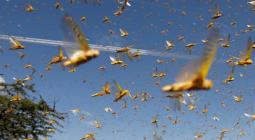Kenya races to prevent new locust plague threat.

Kenya is in a race to track locusts to prevent a new plague from forming in East Africa and eating all the greenery they find in their wake.
Hundreds of billions of locusts swarmed parts of East Africa and Asia in February, wreaking havoc for livestock farmers. It is feared the tiny invaders could return towards the end of the year.
A helicopter team, backed by the United Nations Food and Agriculture Organization, searches for desert locusts in rural areas.
"Desert locusts have a number of negative effects and can be completely destructive in the rural communities. They compete for the same grazing as locals' livestock and can completely destroy crops if they move into that area," said Wes Renken, helicopter pilot with BAC Helicopters on contract for the UN group.
Young hopper locusts can be seen on the tops of trees and plants, they resemble a pink frost.
If left to feed and grow, they will fly, swarm and eventually travel distances of 200 kilometres (124 miles) a day, ravaging everything green that they encounter along their way, devestating farmers.
"There were lots of locusts that were eating all the vegetation of the livestock, and a lot of goats died. But since the project started there are no more locusts and it's helped a lot," said Etapar Lezian, a farmer.
Once locusts are identified, people on the ground take a GPS location and then communicate that with the helicopter pilot who does a ground verification of the locusts and their stage of development.
Locusts generally don't kill plants, so the land can rejuvenate. The insects' faeces is also a rich fertiliser.
But animals are in competition with the locusts for green plants.
*Watch the video HERE
17 August 2020
africanews.com





